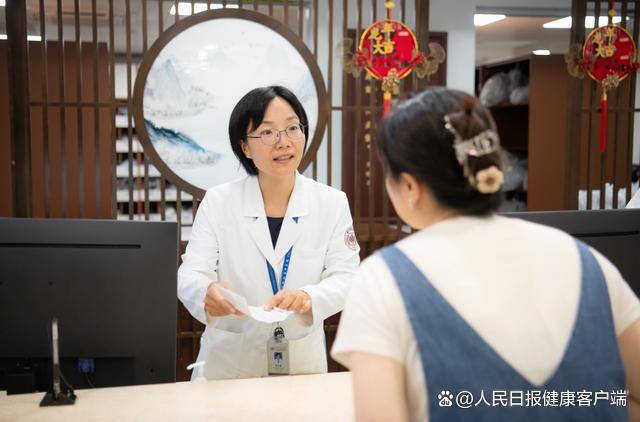(People’s Daily Health Client Reporter Zhou Xuejin Zhao Mengmeng) On August 22, “Chinese herbal medicine mixed with noodles” trended on hot search, sparking discussions on various social media platforms. Chen Hongshu, deputy director of the Chinese Medicine Department at Zhejiang Province Hospital of Traditional Chinese Medicine, told the People’s Daily Health Client reporter, “It is not advisable to drink Chinese herbal medicine while eating. Take medicine when necessary, and eat when it’s time to eat.”
In the movie “Hedgehog,” Wang Junkai, playing the role of Zhou, poured Chinese herbal medicine directly into the noodle soup he was eating. At a movie promotion event, some viewers mentioned wanting to try the “Chinese herbal medicine mixed with noodles” like Zhou, but Wang Junkai reminded them not to imitate.
Chen Hongshu said, “The efficacy of Chinese herbal medicine is closely related to the method and timing of administration. Taking Chinese herbal medicine while eating may affect the effective ingredients of the medicine, reducing its efficacy. In addition, Chinese herbal medicine has a distinct taste, mixing it with food will also affect the taste of the food.”
Chen Hongshu, deputy director of the Chinese Medicine Department at Zhejiang Province Hospital of Traditional Chinese Medicine, introducing medication instructions to patients. Image provided by interviewee
Zhu Qingjun, director of the Traditional Therapy Department at the First Affiliated Hospital of Anhui University of Chinese Medicine, explained that noodles are a relatively neutral food, putting certain Chinese herbal medicine into noodle soup for patients to take has no side effects, but the efficacy of the herbal medicine will certainly be reduced. “If one must do so, it is better to directly consume some medicated food. This method of administration is not recommended for imitation.”
Chen Hongshu stated that the administration of Chinese herbal medicine varies from person to person and should be determined according to the patient’s specific condition and the nature of the medicine. For Chinese herbal medicine that induces sweating and dispels cold, patients are advised to take it while hot to promote perspiration and better exert the medicine’s effects. Conversely, for heat-clearing, detoxifying, and antiemetic Chinese herbal medicine, it is recommended to take them after cooling down, following the traditional Chinese medicine principle of “cold for heat, heat for cold.”
“The timing of taking Chinese herbal medicine also varies. For tonic Chinese herbal medicine, we recommend taking it on an empty stomach, allowing the medicine to be quickly absorbed by the gastrointestinal tract without interference from food, thus exerting its effects and reducing the burden on the spleen and stomach,” Chen Hongshu explained. Medications for gastrointestinal diseases are generally taken before a meal to allow direct contact with the gastrointestinal mucosa for faster absorption; for stimulating Chinese herbal medicine for the digestive system, it is recommended to take it after meals.
“During the course of taking Chinese herbal medicine, one should pay attention to dietary restrictions and avoid consuming spicy, greasy, raw, and cold irritating foods to avoid affecting the efficacy of the medicine,” Zhu Qingjun said. The administration methods and timing of Chinese herbal medicine have their own considerations, and patients should follow medical advice without making changes at will. If in doubt, they can consult a doctor or pharmacist for advice.
(Source: People’s Daily Health Client)


